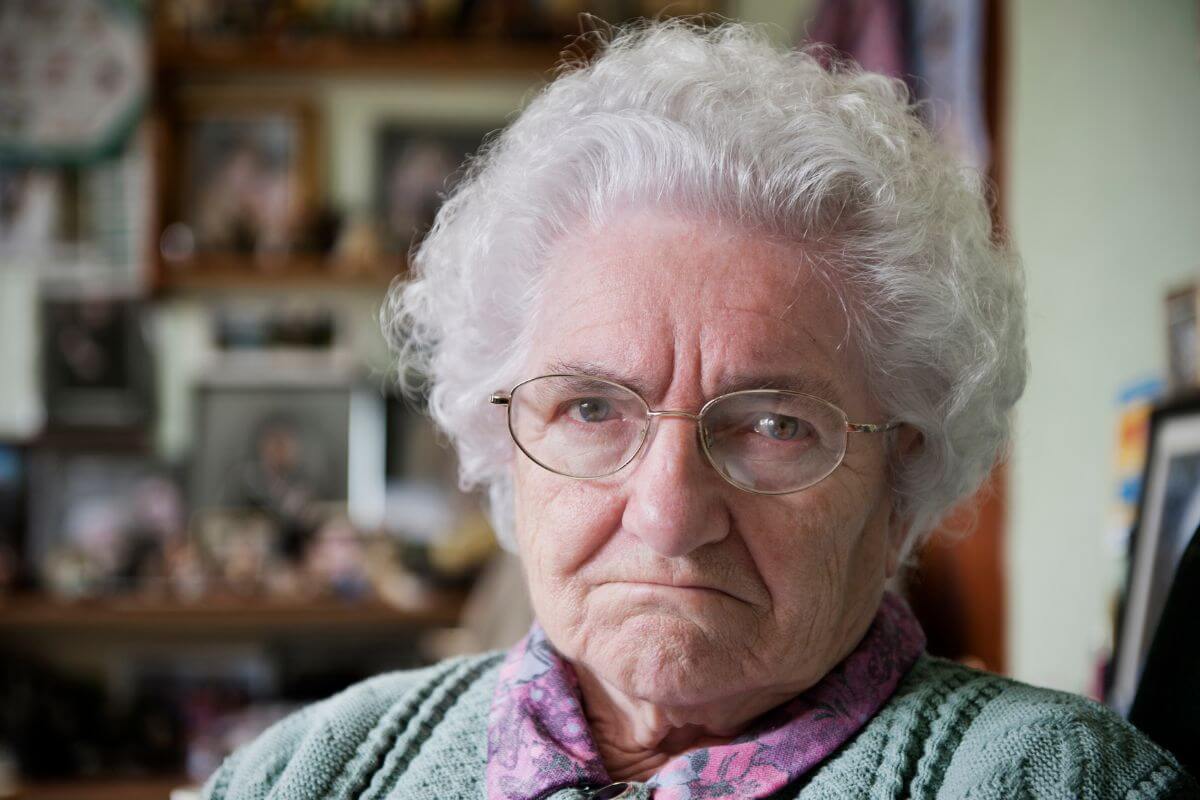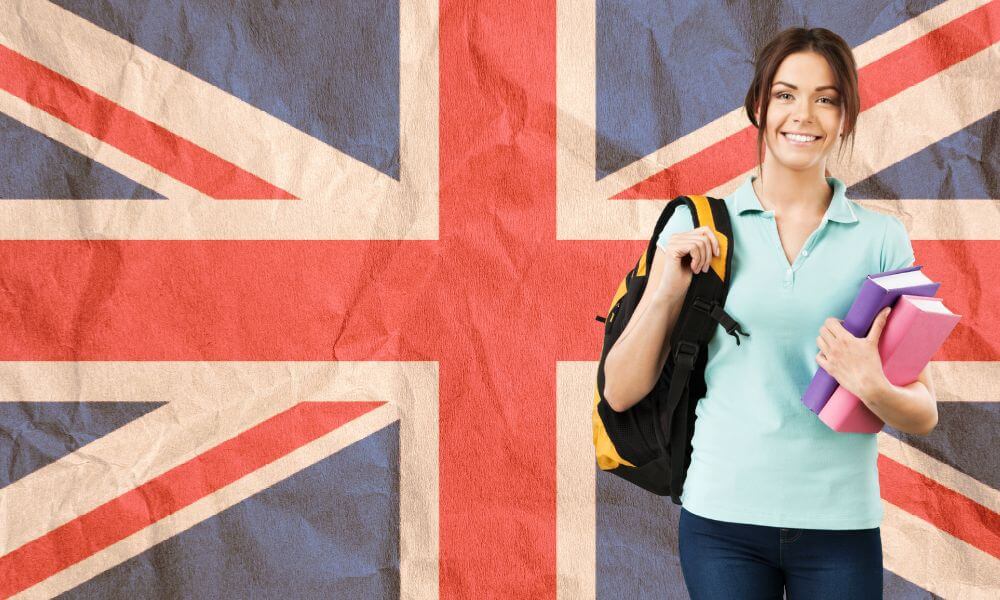British slang has had a great deal of time to stew and mature.
This means both that, for more or less any commonly used words, there are going to be a great deal of both historic, ancient slang terms that have either fallen out of use or remain strong to this day, and of new slang developing as the world changes.
This is particularly true of slang terms for girl and woman—today, we’re going to look at a cross section of examples of both kinds.
Let’s get started.

Lass

Perhaps the most quintessentially British slang for girl is lass.
“Lass” is used far more in Scotland than anywhere else, though it is also widely used across the north of England and in parts of Wales.
It’s one of the oldest slang terms for girl in British slang, and seems to have originated in the late Middle Ages.
It derives from an Old Norse word laskwa, which meant “unmarried”.
It is more often used for young girls today, but has no real direct connection to marriage today.
Its use has seen a steady rise in recent years back to former levels after falling out of use to some extent.
Hen

Next we have “hen”, which is another instantly recognizable British slang term for girl.
This one, too, is mostly used in Scotland and in the north of England.
However, virtually all British people would recognize the idea of a “hen do”—which is the party that the bride has before the day of her wedding.
She and all her female friends are “hens”.
As we will see, referring to women using bird analogies is quite common.
“Hen” meaning a woman dates from at least the 1620s and probably earlier.
Bird

Next we have bird, which is certainly one of the more common ones generally across Britain today.
It is used by young and old, from the north of Scotland to the south of England and virtually everywhere in between.
It is perhaps more common to use this term a bit more specifically, to mean someone’s partner or girlfriend.
It can also just mean any girl, though.
The term as we know it today originates in the 20th Century, where in the 60s and 70s there was a sudden explosion of this usage.
However, as early as the 14th Century, it was used for girl out of confusion with the Middle English burde, which just meant woman.
So the origin of this one is more than a little muddled.
Chick

Readers in the U.S. may be surprised to hear that “chick” is not unheard of as slang for woman in British English.
It is by no means as common as most of the other terms on this list, nor is it half as common in Britain as it is in the U.S.
Nevertheless, you will hear it from time to time.
It likely made its way into British vocabularies sometime in the 20th Century through Hollywood movies and American music.
Our first recorded use of the term is in the 1927 novel Elmer Gantry, where it supposedly comes from Black American slang.
It became popular in the jazz world and eventually spread to the Beatniks.
Bint

Next up we have “bint”, which is one you want to be careful about using yourself.
This one is more derogatory and confrontational, the kind of word someone might use for a woman they don’t like.
It’s less common than others if only because it is not meant to be friendly.
It originated during the British occupation of Egypt, where its register could vary quite a lot.
It could mean “bit on the side,” as in girlfriend.
It could also err towards the harsher “bitch”, and from at least the 1950s in London it was more or less synonymous with “bird”.
Chapette

You might not hear this one earnestly used all that much, but it is nonetheless an example of British slang for girl.
It is simply a tongue-in-cheek feminization of the term “chap”, which is an old fashioned term for men.
It might be used in the same way as “ladies and gentlemen.”
It’s very hard to say when this one originated, but it certainly seems to have been relatively recent.
It was probably not much later than the 1920s.
Gooseberry pudding

Now, bear with me for this one.
“Gooseberry pudding” is an example of Cockney rhyming slang, which is a slang used in parts of London based on rhyming words.
It’s hard to say how common this one is among Cockney English people, but it certainly is not widely used outside of London.
How, you might wonder, does gooseberry pudding rhyme with woman?
The term originated around the middle of the 19th Century, and was based on what’s called a forced rhyme.
With a dialectical pronunciation of “pudding” and “woman,” you could indeed make the words rhyme.
Why “gooseberry” came into it is largely a mystery.
Trouble and strife

Next we have another piece of Cockney rhyming slang, which is not as widely used today as it was in the past.
This one specifically refers to someone’s wife.
The idea being the old fashioned notion that marriage is an arduous task and that there is endless conflict and strife within marriage.
Indeed, further, it’s based on misogynistic ideas about women’s role in a marriage.
Earlier, “trouble and strife” had been rhyming slang simply for life.
Our oldest example of this comes from 1908.
At some point after that, tabloid newspapers started adopting the term to mean wife.
Polone

Another example of Cockney slang is “polone”.
This one refers to a woman or girl, often with the connotation that they are of “loose morals”.
As you might imagine, this is an old fashioned term that doesn’t get used as much today.
But it has also taken on a broader meaning in its modern form, simply meaning girl without the negative connotation so much.
The origin of this one is uncertain.
It could come from the Italian word paglione, and by analogy with the word paliasse “hay bag”.
Unfortunately, we just aren’t sure, though it was used by at least the early 20th Century and probably quite a bit earlier.
Eau de cologne

Following on from the last example, we have “eau de cologne”.
This one is indeed a possible origin for the previous term.
It being rhyming slang largely depends on a forced rhyme and a dialectical pronunciation of both words.
This one is once again not as widely used today, and was never really used outside of London.
It simply referred to a woman.
It rhymed both with “polone” and with “woman”.
We don’t really know when or where this one originated either, though again it was probably not much earlier than the 19th Century.
Buer

This next one is used both in Britain and in parts of Ireland.
Though again it is more historical than contemporary, it is still used in parts of the country by parts of the population.
It’s similar to “polone” in the sense that it was largely used as a kind of derogatory term for a promiscuous woman or one of loose morals.
It was more specifically used for a woman who would have lots of lovers at the same time, and would go out with anyone, including travellers or “gypsies”.
Its precise origin is unknown, but it may be related to the Shelta language used by Irish travelers.
Carlin

Carlin is another slang term used for women, specifically for nasty or grumpy old women.
It’s another which is definitely considered a disparaging term, one that you shouldn’t use if you don’t want to get yourself in trouble.
It conjures the sense of a witch almost and is meant to be a very specific kind of insult.
This one, also, appears to have originated in Scotland.
Its origin stretches far back in time to at least the 14th Century, where we find the first written example of it.
It is not as common today, but in parts of Scotland you may well still hear it.
Biddy

Next we have “biddy”, a common slang term still used across Britain to refer to an old woman.
This one is less derogatory and doesn’t necessarily have any specific negative connotations.
At the same time, it’s not all that nice to be called a biddy.
It generally denotes a stereotypical old woman, doting, nagging and confused.
In origin it was more explicitly negative.
Our first recorded uses come from the 18th Century, where it referred to an old woman who had a habit of nosing around in other people’s business.
It was originally Irish, and based on the given name Bridget, commonly used to address servants.
Bonnie

One clear theme of British slang for girls is that a great many of these terms are Scottish in origin if not exclusively in use.
This one is a bit muddled as it can simply be a way to describe someone as pretty.
However, it can also just be used as a slang term for girl or woman in itself.
Example in a sentence: “I’m going to go over and speak to that bonnie!”
It’s not completely clear whether it originated in Scots or came from French in the first place.
Bon, of course, means “good” in French, so it was expanded to mean pretty more specifically in Scottish slang.
Unfortunately, we don’t know for sure whether it came from French or originated independently in Scotland.
Covess

This is another one that’s quite archaic and not as widely used today, but there is an old fashioned slang term for men, “cove”.
There is, naturally, also a female equivalent of the term which is “covess”.
Again, it’s very uncommon to hear this one but you may from time to time.
It probably originated around the 16th Century, deriving from the Romany word kova, which meant thing or person.
Mort

Next we have another more historical one which is certainly used in some parts of Britain still today.
This one, again, is rather derogatory, generally referring to someone who lacks wits and intelligence.
This became a misogynistic term for “women” that was used later.
However, further back, it referred simply to a woman, again, of “loose morals”.
It specifically meant a yeoman’s daughter, and though the precise etymological origin is unknown, it seems to have originated around the 16th Century.
Foreign Lingo Poll
As you can see, then, slang terms for girl in British could be as old as the middle ages or as recent as the last few years.
Some forms of slang don’t ever come up with specific terms for boys or girls—others find countless creative ways to conceptualize girls from the point of view of language.
British is certainly an example of the latter, even if many of these terms have mostly fallen out of use.

More in British Slang
- British Slang For Alcohol
- British Slang For Angry
- British Slang For Argument
- British Slang For Bad
- British Slang For Boss
- British Slang For Boy
- British Slang For Breasts
- British Slang For Butt
- British Slang For Car
- British Slang For Cat
- British Slang For Child
- British Slang For Cigarette
- British Slang For Coffee
- British Slang For Cold
- British Slang For Cool
- British Slang For Delicious
- British Slang For Diarrhea
- British Slang For Dog
- British Slang For Drunk
- British Slang For Easy
- British Slang For Expensive
- British Slang For Eyes
- British Slang For Face
- British Slang For Fat Person
- British Slang For Fist Fight
- British Slang For Flatulence
- British Slang For Food
- British Slang For Friend
- British Slang For Girl
- British Slang For Glasses
- British Slang For Going To Bed
- British Slang For Good
- British Slang For Good Luck
- British Slang For Goodbye
- British Slang For Gossip
- British Slang For Grandmother
- British Slang For Gun
- British Slang For Hair
- British Slang For Happy
- British Slang For Head
- British Slang For Helicopter
- British Slang For Hello
- British Slang For Horny
- British Slang For House
- British Slang For Hungry
- British Slang For Hurry Up
- British Slang For Husband
- British Slang For Idiot
- British Slang For Jail
- British Slang For Jerk
- British Slang For Job
- British Slang For Kiss
- British Slang For Knife
- British Slang For Loser
- British Slang For Lover
- British Slang For Lying
- British Slang For Menstruation
- British Slang For Money
- British Slang For Motorcycle
- British Slang For Mouth
- British Slang For No
- British Slang For Nonsense
- British Slang For Nose
- British Slang For Pajamas
- British Slang For Party
- British Slang For Police
- British Slang For Poor
- British Slang For Potato
- British Slang For Pregnant
- British Slang For Rain
- British Slang For Relax
- British Slang For Rich
- British Slang For Sailor
- British Slang For Sandwich
- British Slang For Scared
- British Slang For Sexy
- British Slang For Shoes
- British Slang For Silly
- British Slang For Soldier
- British Slang For Stomach
- British Slang For Surprised
- British Slang For Tea
- British Slang For Teeth
- British Slang For Telephone
- British Slang For Television
- British Slang For Testicles
- British Slang For Thank You
- British Slang For Thief
- British Slang For Tired
- British Slang For Toilet
- British Slang For Umbrella
- British Slang For Vacation
- British Slang For Vomit
- British Slang For Walking
- British Slang For Weird
- British Slang For Wife
- British Slang For Wonderful
- British Slang For Work
- British Slang For Yes
- British Slang Insults
- British Slang Quiz


